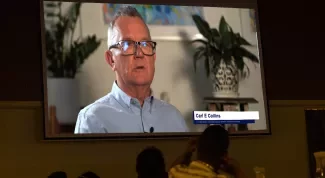Psychological Perspective on Offenses Against Women and Children

In these interviews, psychologists address the critical issues surrounding children in legal proceedings for offenses against women and children. Experts discuss the power imbalances that affect children's testimonies, the profound impact of witnessing domestic violence, and the complex reasons behind the silence of sexual assault victims. The interviews present valuable insights from a psychological perspective that can help build capacity for prosecuting offenses and responding to vulnerable populations.
Joy Anasta: Testimony of Children
Joy Anasta | Founder and Director, Joy Anasta & Associates, Counselor, Psychotherapist, and Clinical Supervisor
Ms. Joy Anasta highlights the critical dynamics at play when children interact with adults in the context of legal proceedings. She emphasizes the inherent power imbalance that affects children's responses, noting that children often seek to please adults, which can impact their testimonies. Ms. Anasta outlines effective techniques for interviewing children to elicit honest and accurate responses.
Carl Collins: The Pervasive Effects of Abuse
Carl Collins | Executive Director, Child Protection Solutions, Consultant
Mr. Carl E. Collins addresses the significant impact of domestic violence on children, highlighting the pervasive fear and emotional trauma they experience. Mr. Collins notes that even when children are not direct victims of physical abuse, they are deeply affected by witnessing violence, which can manifest in subtle yet significant ways. He discusses the potential long-term effects on children's mental health, including the perpetuation of abusive behaviors in future relationships.
Carl Collins: Secrecy Under Duress
Carl Collins | Executive Director, Child Protection Solutions, Consultant
Mr. Carl E. Collins delves into the complex reasons why many child and adult victims of sexual assault often do not disclose their abuse. Aimed at training judges, prosecutors, judicial officers and others involved in prosecuting offenses against women and children, the discussion highlights key factors such as embarrassment, fear, self-blame, manipulation by offenders and the psychological impact of receiving gifts or money from the abuser.